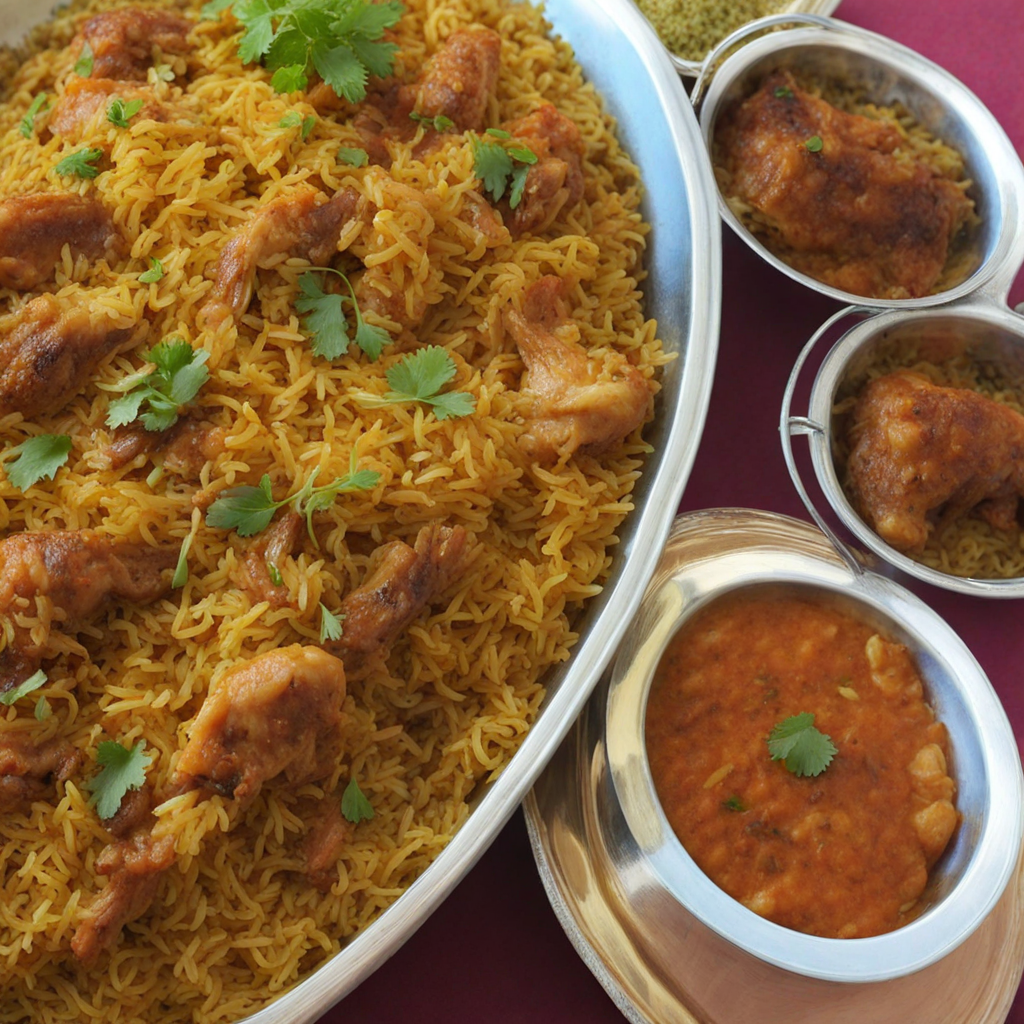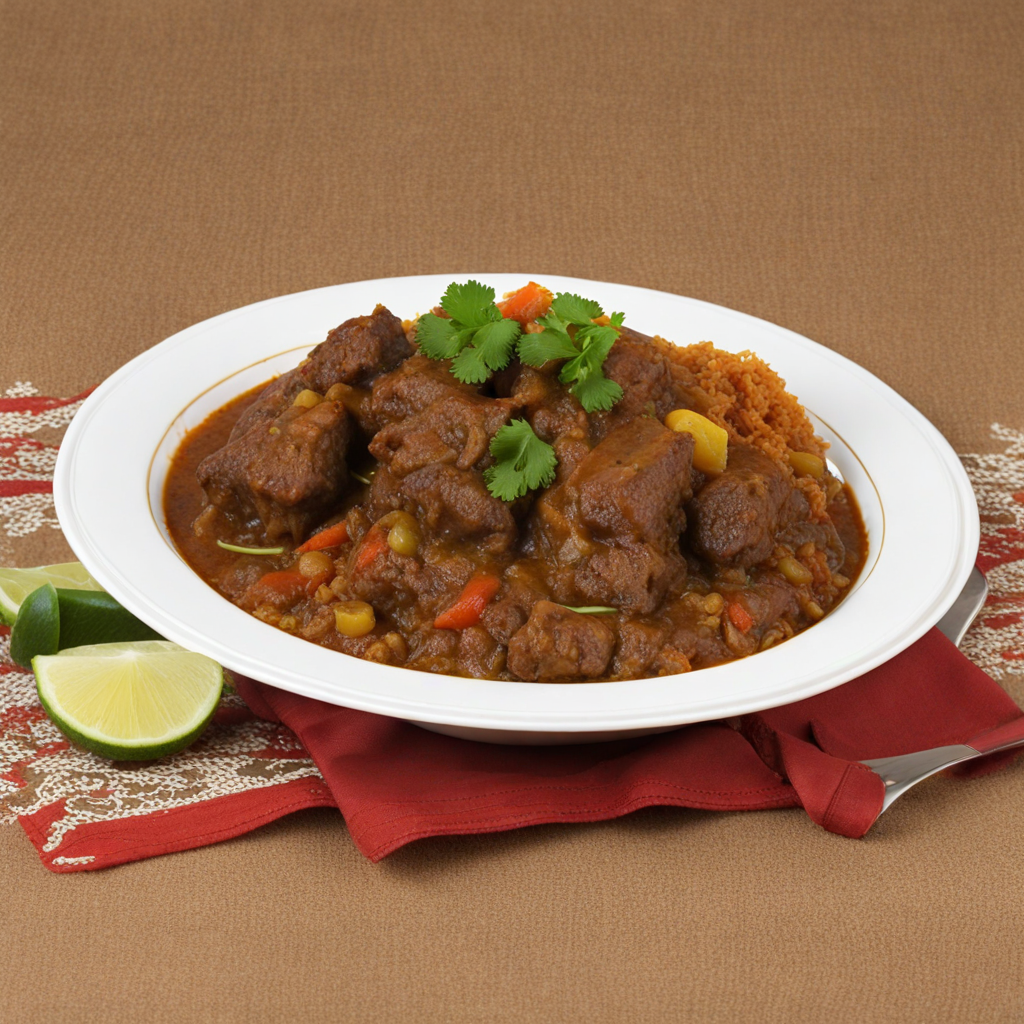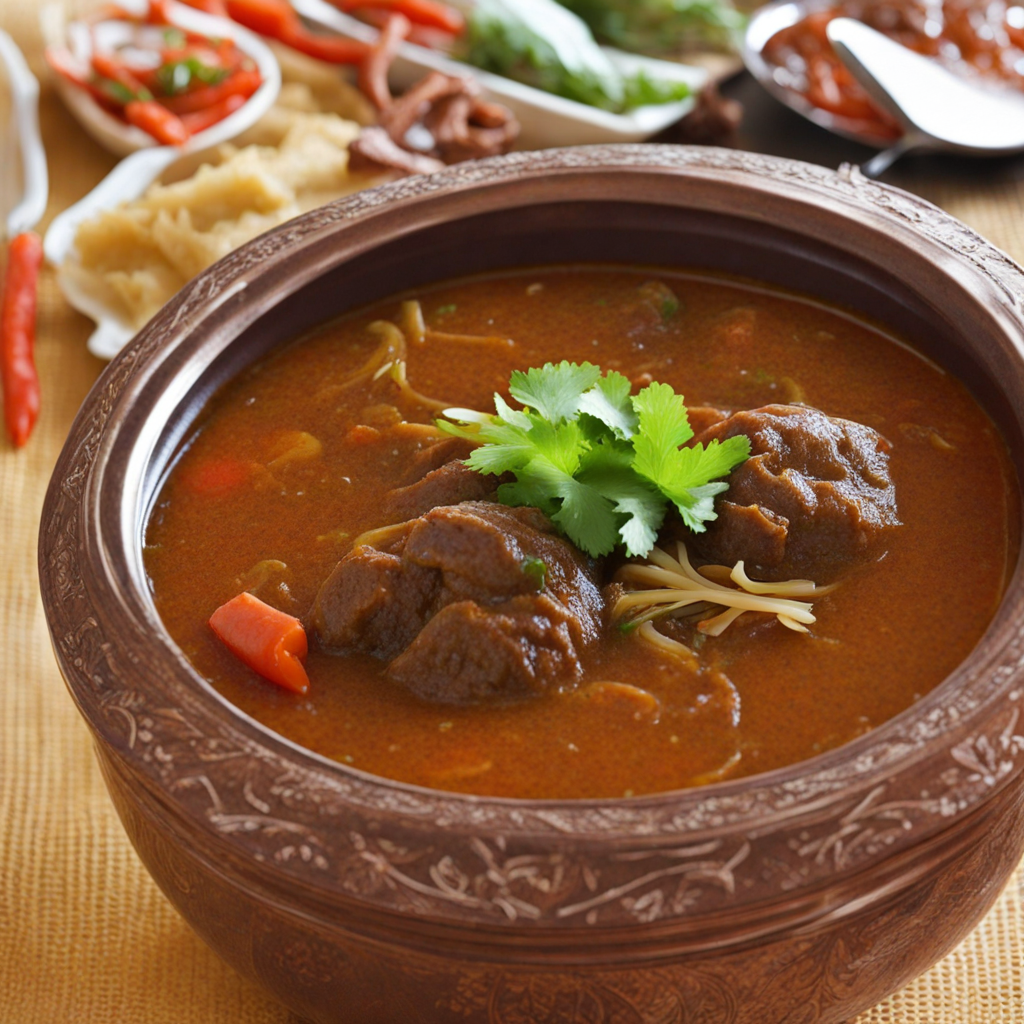Qahwa
Qahwa, a traditional coffee drink from Djibouti, is a sensory experience that transports you to the heart of East Africa. Unlike typical coffee preparations, Djiboutian Qahwa is characterized by its unique blend of flavors. The coffee beans are often lightly roasted to bring out their natural sweetness, and then ground coarsely. What sets Qahwa apart is the addition of spices such as cardamom, cloves, and sometimes cinnamon, which infuse the drink with a warm, fragrant aroma. This aromatic concoction is brewed in a special pot called a 'jebena,' allowing the flavors to meld beautifully, creating a rich and invigorating experience for the palate. The process of making Qahwa is as much a ritual as it is a culinary practice. Traditionally, the coffee is brewed in front of guests, symbolizing hospitality and sharing. The drink is served in small cups, often accompanied by dates or other sweet treats, enhancing the experience with a delightful contrast of flavors. Each sip of Qahwa unveils layers of complexity, with the spices complementing the coffee's natural bitterness, resulting in a well-balanced, invigorating beverage. The cultural significance of Qahwa extends beyond taste; it embodies the spirit of community and connection in Djiboutian society. Qahwa is not just about flavor; it’s a celebration of tradition and togetherness. As you savor this exquisite drink, you are also participating in a long-standing ritual that brings people together, fostering conversations and connections. The warmth of the spices combined with the smoothness of the coffee creates an inviting atmosphere that encourages relaxation and enjoyment. For those seeking to discover new tastes, Qahwa from Djibouti offers an unforgettable journey into the rich tapestry of East African culture and cuisine.
How It Became This Dish
The Story of قهوة (Qahwa) in Djibouti: A Cultural Brew #### Origins: The Birth of Coffee The journey of قهوة (qahwa), or coffee, is a tale woven into the very fabric of Djibouti's culture and history. Although coffee's origins trace back to the highlands of Ethiopia, its profound impact on Djibouti is undeniable. The legend of coffee often begins with a goat herder named Kaldi, who, in the 9th century, observed that his goats became exuberantly energetic after consuming the red berries of a certain shrub. Intrigued by this phenomenon, Kaldi tried the berries himself and experienced a similar burst of energy. From Ethiopia, coffee made its way to the Arabian Peninsula, where it was cultivated and traded extensively. By the 15th century, it had become a staple in the region, particularly in Yemen, where the first coffee houses, known as qahveh khaneh, began to emerge. Djibouti, located at the crossroads of Africa and the Arabian Peninsula, became a natural conduit for the coffee trade, facilitating the movement of this beloved beverage from its Ethiopian roots to the broader world. #### Cultural Significance: More Than Just a Beverage In Djibouti, qahwa is far more than a mere drink; it is a symbol of hospitality, community, and tradition. The preparation and serving of coffee are steeped in ritual, often accompanied by the sharing of stories and the strengthening of social bonds. The Djiboutian coffee ceremony is a significant cultural practice, reflecting the values of respect and generosity that are central to the society. The ceremony typically involves roasting green coffee beans over an open flame, grinding them into a fine powder, and brewing them in a special pot called a "jebena." The preparation is meticulous and often accompanied by the aromatic scents of cardamom and other spices, which are sometimes added to enhance the flavor. The serving of qahwa is a communal affair; it is often poured from a height into small, delicate cups, creating a frothy layer on top, which is a sign of skill and care in preparation. The act of serving coffee is a social ritual that signifies warmth and respect. Guests are often welcomed with multiple rounds of qahwa, and the number of servings can indicate the host's generosity. Traditional etiquette dictates that guests should take at least three cups to show appreciation, as the first cup is for the host, the second for the guest, and the third for the community. #### Development Over Time: From Tradition to Modernity As Djibouti evolved through the centuries, so too did its relationship with coffee. The French colonial period in the late 19th and early 20th centuries introduced new influences on the coffee culture. The French established coffee plantations in various parts of East Africa, including Djibouti, leading to changes in cultivation and trade practices. This era introduced new brewing methods and served as a bridge between traditional Djiboutian coffee culture and European coffee-drinking habits. Post-independence, in 1977, Djibouti's identity became even more intertwined with coffee. The government recognized the beverage's importance not only as a cultural staple but also as an economic asset. Efforts were made to promote coffee cultivation and export, with Djiboutian coffee gaining recognition for its unique flavor profile, which is often characterized by its mild acidity and rich, aromatic qualities. Today, Djibouti's coffee industry faces challenges, including competition from larger coffee-producing nations and the impact of climate change on coffee cultivation. However, there has also been a resurgence of interest in traditional coffee practices among younger generations, who are rediscovering the cultural heritage of qahwa. This revival is marked by a blend of tradition and innovation, with modern coffee shops popping up in urban centers, offering both traditional qahwa and contemporary coffee beverages. #### The Global Influence of Djiboutian Coffee Djibouti's strategic location along the Red Sea has made it a melting pot of cultures, and this multicultural influence is reflected in its coffee traditions. The blending of Arabic, African, and French customs has given rise to a unique coffee culture that continues to evolve. As the global interest in specialty coffees grows, Djibouti finds itself at the intersection of tradition and modernity, leveraging its rich heritage while exploring new avenues for coffee production and consumption. In recent years, initiatives to promote sustainable and ethical coffee practices have gained traction, emphasizing the importance of preserving the environment and supporting local farmers. The resurgence of interest in artisanal and organic coffee has opened new markets for Djiboutian coffee, allowing it to gain international recognition. Coffee from Djibouti is increasingly finding its way to cafes and specialty stores around the world, celebrated for its unique flavors and cultural significance. #### Conclusion: The Legacy of قهوة (Qahwa) The history of قهوة (qahwa) in Djibouti is a rich tapestry that reflects the nation’s identity, values, and resilience. From its ancient origins in the Ethiopian highlands to its current status as a symbol of hospitality and community, coffee has played a vital role in shaping the social and cultural landscape of Djibouti. As we look to the future, the challenge will be to balance modernization with the preservation of traditional practices. Djibouti's coffee culture is an enduring testament to the power of connection—between people, generations, and cultures. Whether enjoyed in a bustling café or during a quiet gathering at home, qahwa remains a cherished beverage, steeped in history and infused with the essence of Djiboutian life. As the world continues to embrace this beloved brew, Djibouti stands proud, a small nation with a big heart, serving its coffee with love and tradition.
You may like
Discover local flavors from Djibouti







